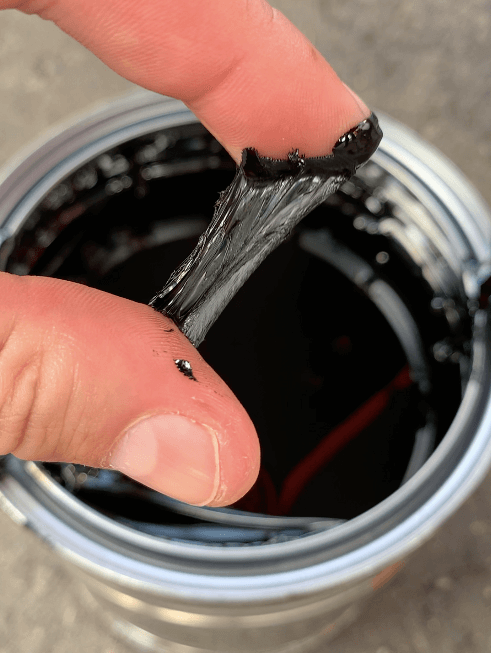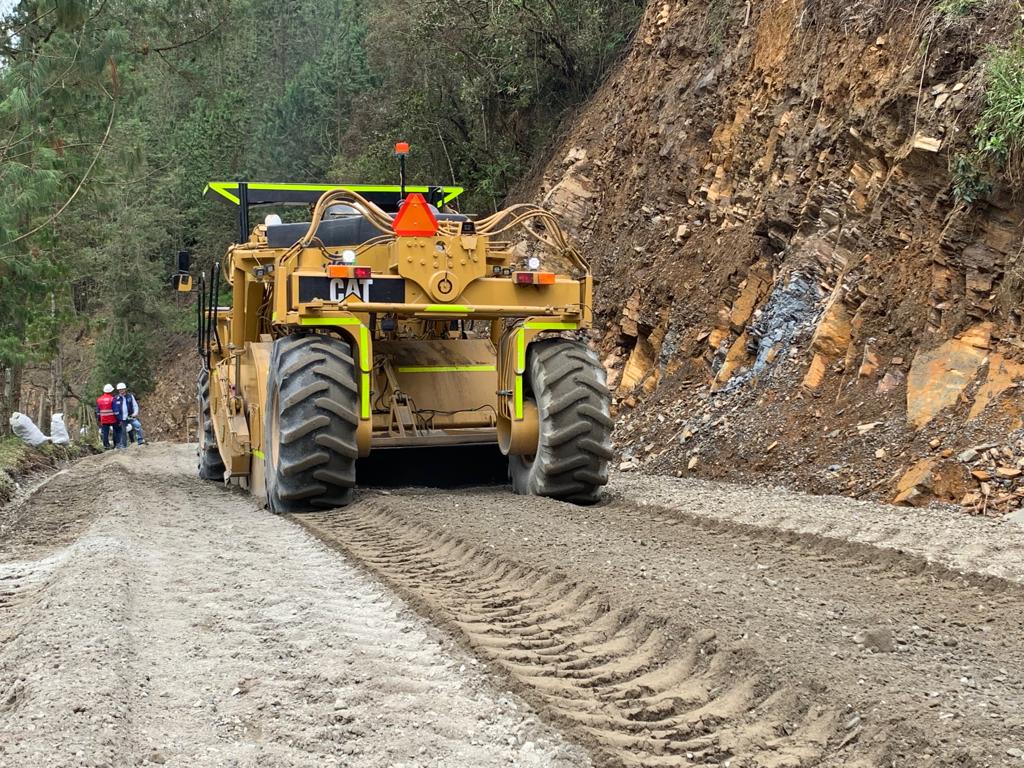PG Asphalt Cement

Performance Grade (PG) polymer modified bitumen is asphalt cement graded by performance grade that undergoes polymer modification in its production process. These are conventional asphalt types of cement to which styrene-based elastomeric polymers are incorporated, thus having asphalt binder properties of excellent quality, far superior to conventional asphalts. There are modified configurations such as Styrene-Butadiene-Styrene (SBS) which is the most common, Styrene-Butadiene (SB), Styrene-Ethylene Styrene Blocks (SEBS), Styrene-Sprene-Styrene (SIS), Radial and Linear SBS, Ethylene Vinyl Acetate (EVA), Ethylene Copolymer Resins (ECR), among others. The incorporation of the above configurations in the asphalt cement / bitumen, after a complex mixture according to each project, increases the ionic surface activity, thus increasing the cohesion between aggregates and the asphalt itself, improving resistance to deformation, improving maximum pavement temperature, reducing minimum pavement temperature, resistance to aging, water penetration, reduces the risk of fatigue and reduces thermal cracking due to high temperatures (or temperature fluctuations).
What Does Polymer Modified Bitumen (PMB) Mean?
PG Asphalt Cement / Polymer Modified Bitumen is a type of asphalt cement designed to offer superior performance and durability compared to conventional asphalt. Styrene-based elastomeric polymers are incorporated into the asphalt cement to create reliable, high-quality products that can resist deformation, aging and water penetration. These modifications provide a higher ionic surface activity, increasing the cohesion between aggregates and the asphalt. With modified bitumen, you also get greater fatigue resistance and enhanced protection from thermal cracking due to high temperatures or temperature variations.
The range of configurations available with PG Modified Bitumen includes Styrene-Butadiene-Styrene (SBS), Styrene-Butadiene (SB), Styrene-Ethylene Styrene Blocks (SEBS), Styrene-Sprene-Styrene (SIS), Radial and Linear SBS, Ethylene Vinyl Acetate (EVA), Ethylene Copolymer Resins (ECR) among others. Each project will require a thoughtful blend of these components creating an asphalt cement that works for that specific application.
Overall, PG (Performance Grade) Modified Bitumen provides powerful advantages over standard asphalt cements in terms of deliverability, longevity and performance in everyday applications.
Performance Grade System for Asphalt Binder
PG (performance grade) system is regulated by the AASHTO (American Association of State Highway Officials) to measure and standardize the polymer-modified asphalt cement in road construction.
AASHTO works to regulate the PG (performance grade) system, allowing us to measure and standardize the polymer-modified asphalt cement used in road construction. This helps ensure that every part of the project meets industry standards and results in a safe, efficient, and long-lasting result.
Our team is familiar with checking for consistency in the mix and asphalt penetration rate so that you can uphold these standards, among all the other lab and field performance requirements established in the AASHTO norm. All of our products are tested in ONAC certified asphalt laboratories, and also provide consulting services to design asphalt mixes with the clients’ locally sourced gravel and sand products.
At times it may sound difficult but performance grading helps identify problem areas quickly and allows us to troubleshoot issues better than ever before. With more accurate data points we are able to compare samples fasterin order todetermine whether or not they meet our specifications.
This process allows us to create roads with exceptional strength and durability which is why AASHTO has become an industry leader in promoting Performance Grading systems for assessing polymer-modified asphalt cement. When working with heavy traffic roads, it tends to be highly recommended to use polymer modified asphalt cement to increase the Fatigue resistance and elastic recovery thanks to the quality of the bituminous binders and their polymer interactions with the gravel/sand components in the asphalt mix. Our quality control during manufacturing and construction as added value, ensures that contractors are using quality materials, ultimately leading to a smoother ride for every driver.
Our commitment to upholding these high standards will provide a sense of pride by knowing your project was built within AASHTO’s tight regulations, ensuring excellence from start to finish.
Performance-Grade Asphalt Cement
We manufacture PG asphalt cement products that meet the following specifications within the framework of ASTM D6373-21a, ASHTO M320-17, and AASHTO M332-17:
PG 52-10, PG 52-16, PG 52-22, PG 52-28, PG 52-34, PG 52-40, PG 52-46 asphalt.
PG Asphalt 58-16, PG 58-22, PG 58-28, PG 58-34, PG 58-40
PG Asphalt 64-10, PG 64-16, PG 64-22, PG 64-28, PG 64-34, PG 64-40
PG Asphalt 70-10, PG 70-16, PG 70-22, PG 70-28, PG 70-34, PG 70-40
PG Asphalt 76-10, PG 76-16, PG 76-22, PG 76-28, PG 76-34
PG Asphalt 82-10, PG 82-16, PG 82-22, PG 82-28, PG 82-34
Uses of Performance Grade Asphalt Cement
Ideal asphalt requires four primary components: Bitumen, aggregate, added agents and traffic use. When these ingredients are combined together, they create a remarkable blend of polymer-modified bitumen that is tailored specifically to meet the demand of the rich physical properties each project requires.
These added agents provide enhanced properties such as viscosity that improve the performance of roads in even the harshest climates and heaviest traffic volume.
It all comes down to selecting the best type of bitumen for your project. Asphalt composition should be tailored to offer a balance between viscosity and elasticity. With this intricate science at play, it takes a careful combination of materials with an absolute viscosity rating in order to ensure structural integrity and longevity.
Creating quality asphalt begins with understanding its unique chemical composition and understanding how this composition can be adjusted to accommodate different needs on different projects.
It’s not just about getting it in the ground, but rather making sure you’re getting quality asphalt for the job. With advances in technology, something as familiar as asphalt can be transformed into something extraordinary when you add polymer-modified bitumen and create important maintenance savings for the road infrastructure manager.
Beforehand, one must depart from a road design that takes into account all the factors that can affect the road during its service life; and from there determine the type of asphalt required, be it a bitumen based on maximum pavement temperature, minimum pavement temperature, rheological properties, viscoelastic properties, fatigue life, Dynamic shear, Rotational Viscosity, amongst other factors that will give the road engineer the parameters to determine the best characterization of asphalt required by that specifically project in each of its stages (sometimes you may have more than one sort of air temperature / climate in the same project).
During construction, one must evaluate constantly all the mechanical properties of the bitumen, asphalt mix, during all the stages of the projects, in order to ensure the end product will meet all the technical and mechanical properties required by the project.

Contact us to get to work
We have a talented team, the best materials, tools, and equipment at your disposal.